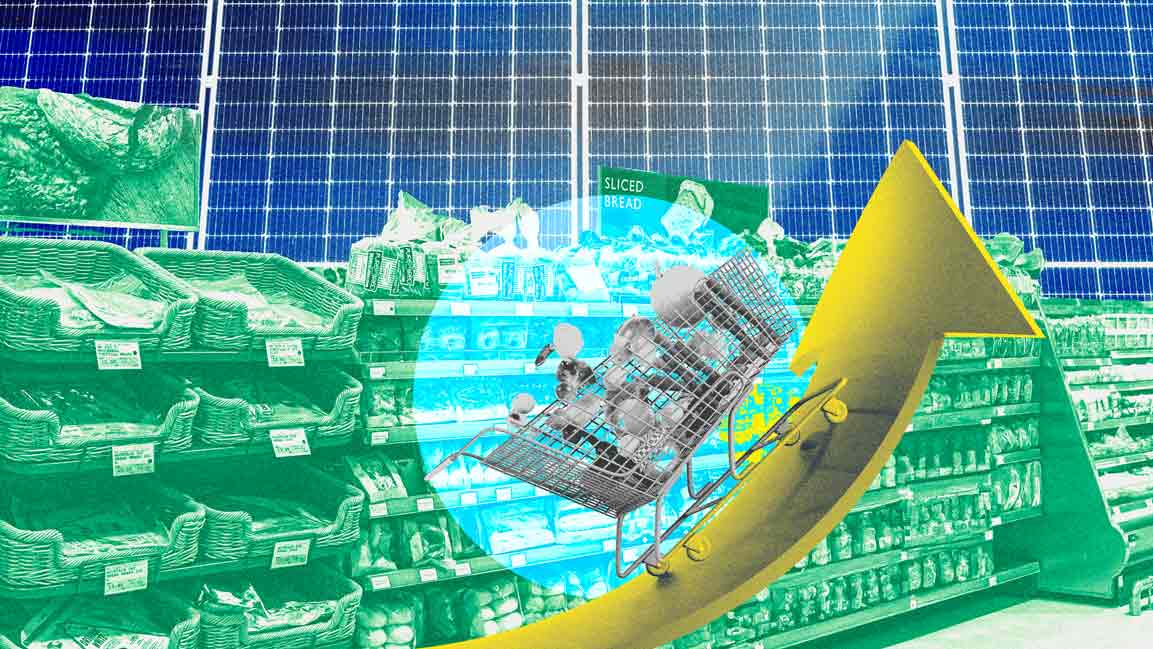- | 2:00 pm
AI is a potent tool to combat climate change
AI serves as one of society’s most powerful tools against the threat of climate change. How are stakeholders utilizing this technology to mitigate climate change, without accelerating carbon emissions in the process?

The second edition of the Green Goals Summit will be held in Dubai on November 2. Click here to register.
In about a month, Fast Company Middle East will host the second edition of the Green Goals Summit in Dubai, bringing together boundary-pushing business leaders and experts to unpack what’s driving innovation and how we can solve the climate crisis.
Amid the urgent need for sustainable solutions, technological advances helped smart action against climate change and lower risk.
Today, practically every industry applies AI to automate problem-solving and processes to enhance optimization capabilities. But we’re not asking a crucial question: What does the growing popularity of AI mean for climate change?
From autonomous vehicles minimizing energy use to agtech solutions allowing farmers to grow crops with significantly less water, AI has far-reaching applications for mitigating climate change issues.
According to a 2022 BCG survey conducted amongst global public and private sector climate and AI experts, 87% of leaders believe AI is useful in the fight against climate change. It also noted that 43% believe in using AI in their climate change efforts, while 61% see the greatest business value for AI solutions in reducing emissions.
Rapid advances in AI offer some hope in our fight against climate change.
ADDRESSING WATER SCARCITY
Deep technology startup Manhat focuses on natural water distillation patented technology for sustainable water and floating farm solutions. Launched in the UAE by Dr. Saeed Alhassan and Vishnu Vijayan Pillai, the venture has developed a proprietary technology that desalinates water using a natural water cycle, resulting in zero electricity consumption, zero CO2 emissions, and zero brine production. This water can irrigate crops on floating farms, offering a sustainable solution for coastal communities and helping alleviate the threat of rising sea levels caused by climate change.
Dr. Alhassan explains that utilizing AI has been useful in collecting, analyzing, and interpreting large geographical and environmental data vital for our technological advancements. “This involves processing data related to tidal and wave patterns, ocean depths, wind behavior, and coastal currents along the coastline.”
Its machine learning algorithms can identify patterns and correlations that may not be immediately apparent to human observers, helping make data-informed decisions. He adds, “AI algorithms can predict rising sea levels, essential for planning and designing sustainable floating farms in the face of climate change. By analyzing real-time data from water-producing devices, AI algorithms can adjust various parameters to ensure maximum efficiency, minimal waste, and reduced energy consumption.”
Manhat’s tech offers an eco-friendly solution to the global water scarcity issue and is patented in 18 countries, such as the UAE, USA, UK, China, Japan, Germany, and more. It has received multiple awards and achievements, including special accreditation from the United Nations for the UN Water Conference in 2023.
IMPROVING ENERGY EFFICIENCY
Shipsy, a SaaS-based smart logistics management platform provider, has developed its AI co-pilot, Logistics Intelligent Assistant. The AI co-pilot utilizes predictive and prescriptive intelligence to empower businesses to build proactive logistics management strategies. CEO and co-founder Soham Choksi explains that AI and machine learning power Shipsy’s route optimization module.
Choksi elaborates, “It drastically enhances vehicle capacity utilization, eliminates empty miles, and lowers delivery re-attempts. All these factors are critical contributors to reducing an organization’s carbon footprint. We have helped eliminate over 1 billion miles and saved 750KT of carbon emissions.”
Based in India, UAE, Indonesia, and Africa, the company has integrations with more than 64 major shipping lines, 50+ third-party logistics companies, 300+ freight forwarders, 50+ customs agents, and a network of over 20,000 global shippers.
Leveraging AI and digital tools is critical to alleviate climate change issues.
“These technologies provide the means to analyze vast data, enabling businesses to make informed decisions prioritizing resource optimization and environmental sustainability,” says Chokshi.
“By harnessing AI’s predictive capabilities, we can fine-tune supply chains, minimize waste, and operate with heightened efficiency. Integrating AI and digital tools ultimately empowers industries to transition towards greener practices, substantially impacting global efforts to combat climate change,” Chokshi adds.
On another note, leveraging advanced technologies is crucial for effective and efficient resource utilization, especially in managing limited resources such as water, says Vishnu Vijayan Pillai, co-founder and COO of Manhat.
“AI can optimize resource usage, reduce waste, and improve overall system efficiency, making it a valuable tool in resource management. With the unpredictable shifts in weather patterns and environmental conditions caused by climate change, predicting these changes and adapting strategies accordingly is becoming increasingly important; AI can help in this regard.”
He says, “By combining AI with innovative technologies like our technology, we can create groundbreaking solutions that have the potential to transform industries and mitigate the effects of climate change.”
Green Goals Summit’s Climate Tech Transformation: Driving Innovation For A Sustainable Future panel will delve into the critical role of technology in addressing the multifaceted dimensions of the climate and the transformative potential in renewable energy, sustainable agriculture, transportation, and urban planning.







































